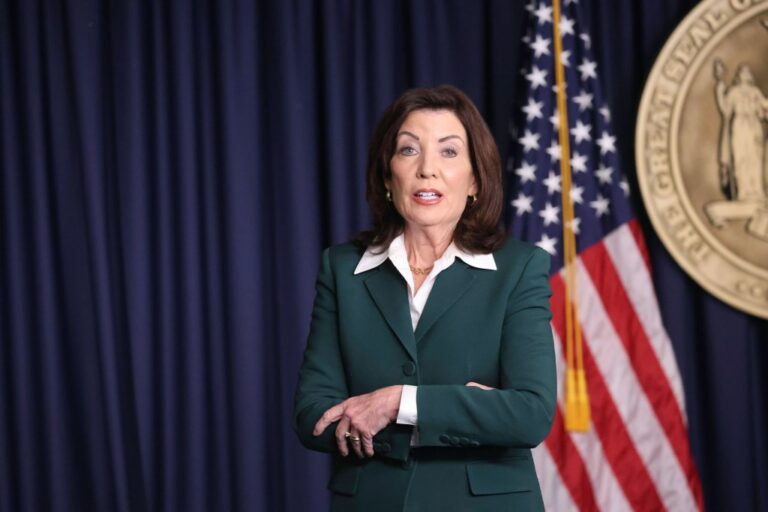New York Democrats have joined Republicans in urging Gov. Kathy Hochul to reassess the state’s timeline for transitioning to electric vehicles (EVs). A bipartisan group of lawmakers is raising concerns about the potential economic impact of the accelerated shift away from gasoline-powered cars.

The Advanced Clean Car rule mandates a significant increase in EV sales, requiring 35% of new car sales in New York to be emissions-free by 2026, escalating to 100% by 2035. However, many lawmakers and industry representatives believe this timeline is too aggressive.
“While we understand the goal of reducing emissions, the current mandate presents numerous challenges for New Yorkers, particularly for dealerships, employees, and consumers, that could have substantial economic repercussions,” stated a bipartisan letter sent to Hochul on February 14th. The letter was signed by eight members of New York’s House delegation, including Democrats Joseph Morelle, John Mannion, and Tim Kennedy, along with Republicans Nicole Malliotakis, Mike Lawler, Nick Langworthy, Nick LaLota, and Claudia Tenney.
Lawmakers and car dealerships fear the timeline is unrealistic, given current consumer demand. The letter highlighted that EV sales nationally accounted for only 8.1% of the market in 2024, with sales in many parts of New York remaining below 2%.

The letter continued, “Despite increased investment in EV infrastructure and extensive government incentives, many consumers are not yet ready or able to make the switch to electric vehicles.” Legislators expressed concern that the mandated transition could potentially damage New York’s auto market.
Concerns were raised about the requirement for auto dealers to sell one zero-emission vehicle for every two gas-powered or hybrid vehicles. The lawmakers further commented that “This artificial manipulation of supply and demand is expected to raise the prices of all vehicles, making even hybrids and gas-powered cars more expensive for consumers.” The letter urged Gov. Hochul to allow a more gradual transition that considers “market realities, consumer readiness, and the economic well-being of New Yorkers.”
The state government, however, maintains its current trajectory, citing existing flexibilities that give car manufacturers more time to comply. According to Hochul’s office, “The State has been clear that manufacturers do not need to achieve 35% of car sales as EVs by next year. The requirements …can be achieved with a variety of available flexibilities.” Hochul’s office noted that the effective requirement for EV sales could be as low as 11% for the 2026 model year. The Department of Environmental Conservation will not enforce the 35% sales rate until the end of 2030 “at the earliest.”

This debate is part of a broader discussion in New York regarding climate change policies. The Climate Leadership and Community Protection Act of 2019 aims to reduce carbon emissions by 40% by 2030, while working towards 100% zero-carbon electricity by 2040. Other measures include bans on gas stoves and furnaces in new construction and a prohibition on using carbon dioxide to extract natural gas.
The lawmakers argue a measured approach would give the state time to build necessary infrastructure like charging stations, increase public confidence in EV technology, and offer consumers a greater variety of vehicles. Hochul’s office insists penalties can be avoided because manufacturers have flexibility.
These discussions come amid consumer concerns, including Con Edison’s request to increase electricity bills by 11.4% and gas bills by 13.3%, in part due to the costs associated with building clean energy infrastructure.



